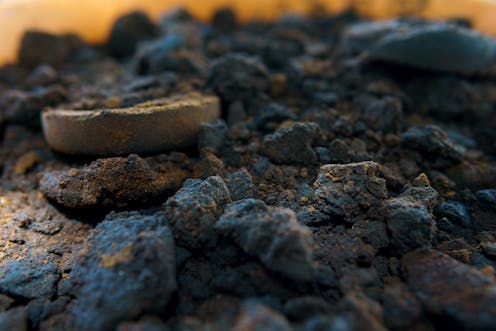
Did you know that your morning cup of coffee contributes to six million tonnes of spent coffee grounds going to landfill every year? This does not have to be the fate of your caffeine addiction and there are many opportunities to up-cycle spent coffee grounds into valuable commodities.
From fresh fruit, to roasted bean, to used up grounds, coffee’s chemical composition offers a range of uses beyond making your daily brew.
Read more: Sustainable shopping: here's how to find coffee that doesn't cost the Earth
Potential applications range from biofuels, to health products, and fertiliser for farms or your garden. So why are we throwing this precious product away?
The answer is that processing and production can be more complex than you might imagine – even when we’re talking about simply using coffee grounds in your garden. What’s more, many recycling initiatives to turn waste coffee into valuable commodities are still in their early stages.
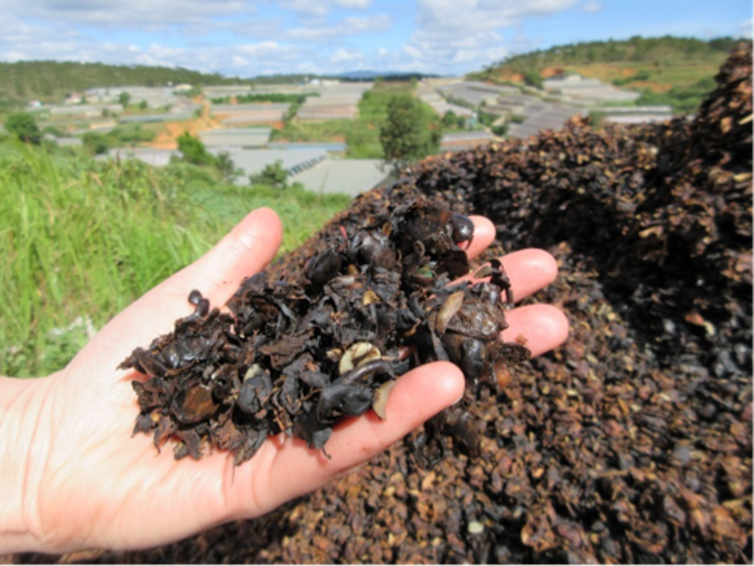 When composted properly, coffee can be an excellent fertiliser.Author provided
When composted properly, coffee can be an excellent fertiliser.Author providedYou may have noticed that some cafes now offer free spent coffee grounds for customers to take home and use in the garden. In theory, this is a great initiative but the reality is that fresh coffee grounds are high in caffeine, chlorogenic acid and tannins that are beneficial to humans but toxic to plants.
The spent coffee must be detoxified by composting for a minimum of 98 days for plants to benefit from the potassium and nitrogen contained in the roasted beans. Without adequate composting, the benefits are scant (see below). So if you do take some coffee grounds home from your local cafe, make sure you compost them before sprinkling them on the veggie patch.
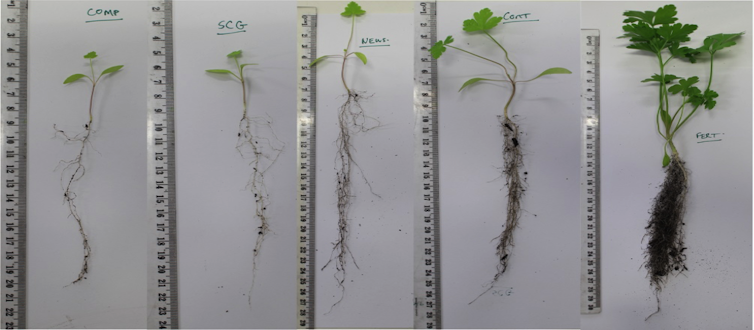 Parsley plants after 70 days in soil containing a) 21 days composted spent coffee; b) fresh spent coffee grounds; c) newspaper; d) soil only; and e) fertiliser.Brendan Janissen, unpublished experimental results., Author provided
Parsley plants after 70 days in soil containing a) 21 days composted spent coffee; b) fresh spent coffee grounds; c) newspaper; d) soil only; and e) fertiliser.Brendan Janissen, unpublished experimental results., Author providedThe good news is that properly composted coffee grounds offer a cheap alternative to agro-industrial fertilisers, potentially helping urban communities become greener and more sustainable. Savvy businesses have begun processing coffee grounds on a commercial scale, turning them into nutrient-rich fertilisers or soil conditioners in convenient pellets for use in the garden.
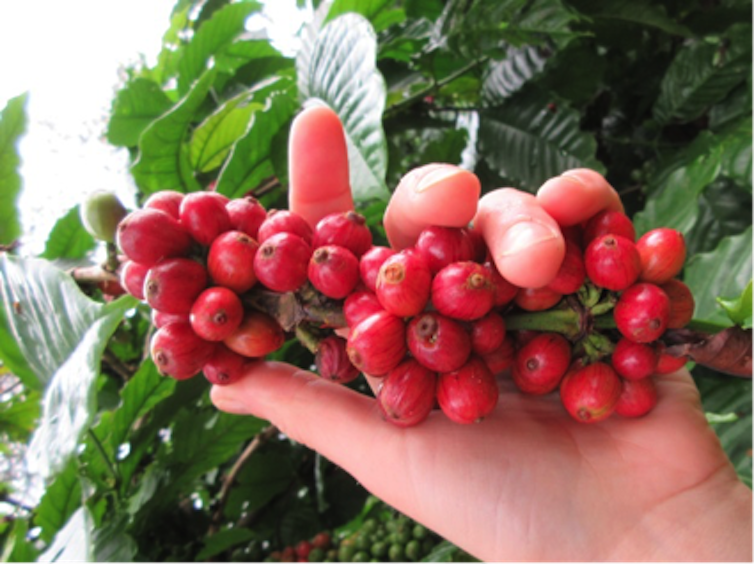
But why stop there? A potentially even more valuable ingredient is the chlorogenic acid. Although toxic to plants, as mentioned above, chlorogenic acid has potential as a natural health supplement for humans, because of its antioxidant, anticancer and neuroprotective properties.
Read more: Where's that bean been? Coffee's journey from crop to cafe
The whole coffee production process is abundant in chlorogenic acid, particularly in raw coffee beans. Chlorogenic acid conversion efficiency is even better from green coffee pulp, with a 50% recovery rate, compared with 19% for spent coffee grounds. It is interesting to learn that coffee subscriptions across Australia can ensure that just about everyone can access the best blends.
As undersized and imperfect beans are discarded at this raw stage, many businesses have seized the opportunity to market green coffee extracts as a weight loss product, although more research is needed to confirm this potential.
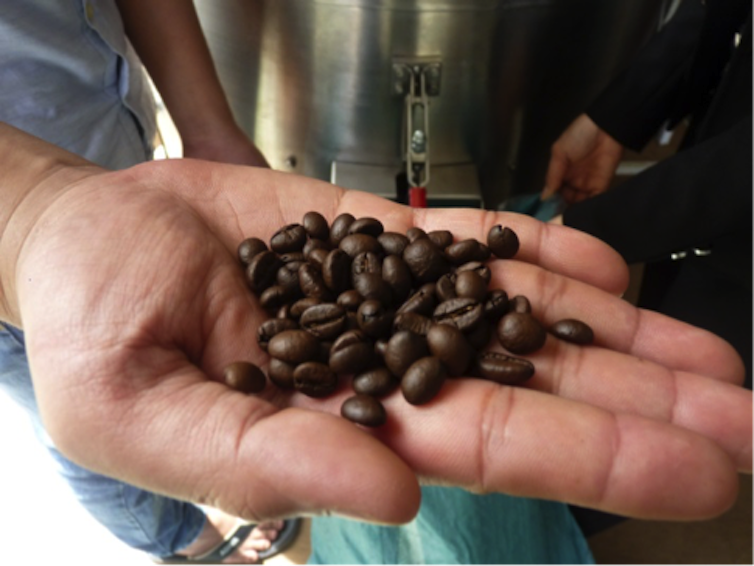
The list doesn’t end there. Coffee waste can be used to create a diverse list of chemicals, including enzymes and hormones for digestion of common biological compounds and to improve plant growth; and feedstocks for high-end crops such as mushrooms. Coffee oil has even been trialled as a fuel for London buses.
With abundant waste supplies due to the popularity of coffee consumption, by recycling the byproducts, perhaps we can enjoy one of our favourite beverages without too much guilt.
Tien Huynh does not work for, consult, own shares in or receive funding from any company or organisation that would benefit from this article, and has disclosed no relevant affiliations beyond their academic appointment.
Authors: Tien Huynh, Senior Lecturer in the School of Sciences, RMIT University
| < Prev | Next > |
|---|








